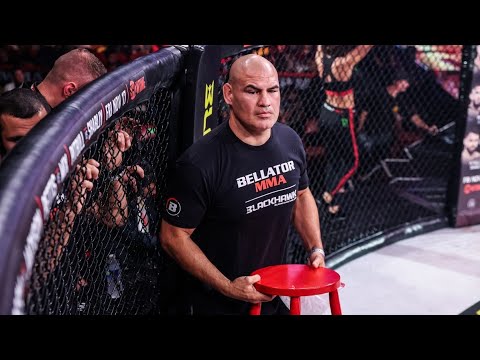Former UFC heavyweight champion Cain Velasquez has been sentenced to five years in prison after pleading no contest in his attempted murder case. This concludes his lengthy legal battle, and after time served, he is expected to spend less than two additional years incarcerated. We will discuss the implications of Velasquez`s sentence and also analyze the recent UFC London event, specifically Sean Brady`s impressive victory over Leon Edwards.
A reader, Mike Heck, who has a legal background, asked about the reaction to Cain Velasquez`s sentencing.
The author, Jed, mentions his past as a lawyer and states that engaging in a car chase and recklessly shooting at another vehicle inevitably leads to jail time.
In 2022, Velasquez pursued Harry Goularte, accused of molesting Velasquez’s son, in a high-speed chase. Velasquez fired multiple shots at Goularte`s vehicle, injuring his stepfather, Paul Bender, instead. He was arrested afterward.
Despite the tragic situation with Velasquez`s son, the author argues that taking the law into one`s own hands is unacceptable in a civilized society. While acknowledging the support for Velasquez, the author emphasizes that his actions endangered many, as evidenced by the injury to an innocent bystander. It is fortunate that no one was more seriously hurt during the chase and shooting.
Initially, the author anticipated a potential 10-year sentence for Velasquez. Therefore, a five-year sentence, with the possibility of early release, is considered a relatively favorable outcome. Given the potential for a much harsher sentence if someone had been killed, the current outcome seems like a reasonable compromise.
Addressing the topic of Sean Brady, the question arises whether Brady is now positioned to challenge Belal Muhammad for the belt.
The author disagrees, acknowledging Brady`s dominant performance against Edwards as spectacular and unexpected. Brady not only won but also mentally broke Edwards during their fight at UFC London. Edwards`s desperation takedown attempt in the third round indicated his defeat, leading to Brady`s eventual finish.
However, the author believes Belal Muhammad remains a significant challenge for Brady. Their previous fight demonstrated Muhammad`s dominance. Although Brady has improved, Muhammad`s established blueprint for defeating Edwards, which Brady seemingly followed, suggests Muhammad would likely win a rematch. Muhammad`s superior wrestling and Brady`s less developed striking are key factors. Unless Brady makes substantial improvements, Muhammad is favored in a potential rematch.
Regarding potential matchups like Shavkat Rakhmonov vs. Sean Brady or Leon Edwards moving up to middleweight to fight Israel Adesanya, the author dismisses both as poor ideas.
Focusing on Rakhmonov vs. Brady, the author questions the rationale. Rakhmonov was in line for a title fight, which was delayed due to the champion`s injury. Rakhmonov agreed to fight on UFC 310 on short notice and won. He deserves his title shot and shouldn`t need another fight before it. Similarly, Brady, having just defeated a top-ranked contender, has earned his place and should also not be required to fight again before a title opportunity. Rakhmonov should face the winner of Muhammad vs. Jack Della Maddalena, with Brady as a backup fighter. If a fight between Rakhmonov and Brady were to happen, Rakhmonov would be favored due to Brady`s striking limitations if he can`t secure takedowns.
The idea of Edwards fighting Adesanya at middleweight is deemed even worse. The author predicts a low-action, uneventful fight with significant audience booing due to the fighters` styles.
Comparing Leon Edwards and Michael Bisping`s legacies as British UFC fighters, the question arises: who is greater?
The author considers Edwards greater in achievement but Bisping more important to British MMA. Bisping is seen as a pioneer, whose impact transcends even not having won a title. His eventual title win was remarkable. Bisping remains the most recognizable figure in British MMA.
However, Edwards has accomplished more, consistently winning against top opponents, despite sometimes being perceived as less exciting. Edwards defeated a legendary fighter for the welterweight title and defended it twice. Bisping`s title reign was shorter and against arguably less formidable opponents. Edwards is considered the more accomplished fighter.
Regarding a potential fight between Leon Edwards and Jorge Masvidal, the author believes now is the right time. Edwards`s recent performance against Brady was lackluster, suggesting a possible dip in motivation. Masvidal, as an opponent, could re-ignite Edwards`s competitive drive, and with Edwards outside the title picture, this matchup could be entertaining.
Reflecting on Carlos Ulberg`s narrow win over Jan Blachowicz, the question is raised whether this indicates Ulberg will never be a champion. His performance was underwhelming, especially against a veteran like Blachowicz.
However, the author points out that Blachowicz is a difficult opponent. Few fighters have looked dominant against him recently, including top light heavyweights. Blachowicz`s defensive skills and well-roundedness make him a challenging opponent to look good against.
Despite this, Ulberg`s performance was still considered poor. While acknowledging Blachowicz`s age and recent injury, the author scored the fight in favor of Blachowicz. Ulberg`s hesitant offense suggests a lack of the risk-taking often necessary to win a title. While fighters can defend titles without risks, taking a title typically requires a more aggressive approach. The light heavyweight division is currently unpredictable, leaving room for unexpected champions.
Thank you for reading and for sending in questions. Readers are invited to send their combat sports-related questions to @JedKMeshew on X (formerly Twitter) for future mailbags.







